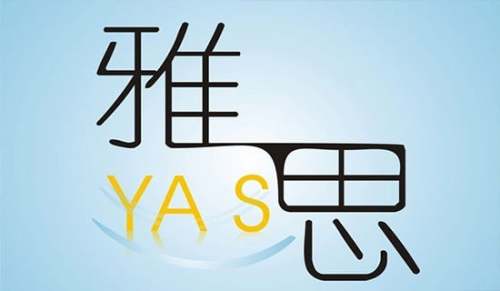- 相关推荐
关于垃圾处理的雅思英语作文
在当今社会,大城市和农村都在广泛使用不可生物降解的垃圾塑料容器和餐具。面对这些垃圾,我们该怎么办?下面有小编整理的关于这个话题的雅思范文,大家可以参考参考。

如何面对永不消失的垃圾
Many people say that we have developed into a “throw-away society”, because we are filling up our environment with so many plastic bags and rubbish that we cannot fully dispose of. To want extent do you agree with this opinion and what measures can you recommend to reduce this problem?
In present-day society, plastic containers and utensils are extensively used in big cities and the countryside alike. They are so ubiquitous I would hazard the guess that each one of us has seen, at one time or another, the unsightly scene of plastic bags swirling in the wind. These plastic shopping bags, chopsticks, to-go boxes and mineral-water bottles, to name but a few, when not properly disposed of, create a colossal amount of non-biodegradable refuse. Therefore, some people argue that we have embarked upon a “throw-away” era when plastic trash is largely dumped indiscriminately and irresponsibly (this practice is often labeled “white pollution” on account of the color of plastic wastes). Personally , I wholeheartedly support their view.
There are numerous reasons for this worrisome phenomenon coming into being. To begin with , at present the bulk of people who shop and/or eat out regularly are still poorly-informed, uninformed or misinformed about the pernicious influence that non-biodegradable pollutants exert on the ecosystem, which is the main culprit in the global-scale mishandling of the plastic wastes. The chief component of such trash is polythene, which cannot decompose on landfill sites over the process of the next hundreds of years if no major scientific breakthrough comes along in polythene treatment. Thus, such trash must be dealt with collectively rather than be scattered like tumbleweeds. Secondly, the proliferation of plastic shopping bags and eating ware is largely fuelled by the surging, headlong consumerism. Plastic containers and utensils are lighter in weight, cheaper(often free of charge) in price and water-resistant in performance. These superior properties make them preferable to their paper and cloth counterparts in customers’ eyes; and as consumer satisfaction reigns supreme in contemporary society, compared with superb portability, affordability and utility, how to dispose of them is the last thing the customers are concerned about. Additionally, plastic bags, wrap and containers are also commercially feasible since they are cheaper to manufacture, ship and store. These mercenary considerations also have prompted the good old cloth or paper bags to be supplanted by plastic bags but over the phasing-out process, few stores and restaurants advocate or encourage the use of environmentally—benign disposal of plastic trash, hence the whole slew of non-biodegradable garbage. And environmental hazards ensue.
Given the scale and severity of “white pollution”, we must take immediate steps to address this scourge. In the first place, we must do our utmost to enhance people’s awareness of how persistent and devastating non-biodegradable trash can be to our environment and our posterity’s. Secondly, retail stores and dining establishments should spare no effort in encouraging their customers to reuse plastic packing items. Furthermore, indiscriminate and irresponsible dumping of household garbage or personal junk should be outlawed by the legislature and heavy fines or even jail terms must be imposed on those compulsive litterbugs who fail to get their act together. Then , on the part of the biochemical researchers and technologists , scientific research must be launched here and now in pursuit of effectual ways to convert non-biodegradable refuse to biodegradable refuse. Last but not least, the government must not shirk its obligations in mobilizing scientific resources and rallying popular support in the crusade against “white pollution”. Neither should it pay just lip service to relevant research and campaigns if no enough funding can be obtained otherwise. Additionally, I am convinced a customer tax levied by the government on the use of plastic bags will also help to curb this massive “white pollution”.
The havoc non-biodegradable refuse can wreak on the ecosystem is beyond our imagination. It can eventually devastate soil, water and the aquatic and terrestrial biota. We must start combating this environmental catastrophe before the ecosystem irretrievably breaks down under the reign of the minute plastic debris.
参考翻译
在当今社会,塑料容器和餐具是广泛使用在大城市和农村。他们随处可见我将危害猜,我们每个人都有看到的,在一个时间或另一个,难看的塑料袋在风中旋转。这些塑料购物袋、筷子、打包盒和矿泉水瓶子,等等,不一而足,当不正确处理,创建一个巨大的数量的不可生物降解的垃圾。因此,一些人认为我们已经开始“废品”时代,塑料垃圾主要是倾倒随意和不负责任(这种做法经常被贴上“白色污染”的塑料废物)的颜色。就我个人而言,我衷心支持他们的观点。
有很多原因产生令人担忧的现象。首先,目前的大部分商店和/或定期出去吃的人还不科学,无知或误导降解污染物对生态系统的有害影响,罪魁祸首在全球范围内的塑料废物处理不当。这样垃圾的主要成分是聚乙烯,不能分解垃圾填埋场在未来数百年的过程如果没有出现在聚乙烯处理重大的科学突破。因此,这些垃圾必须处理集体而不是分散像蒲公英。其次,塑料购物袋的扩散和饮食器皿在很大程度上是由于飙升,轻率的消费主义。塑料容器和餐具是重量轻,价格便宜(通常是免费的)和防水性能。这些优越特性使它们比纸和布同行在客户的眼睛,作为当代社会消费者满意的地位至高无上,而出色的可移植性、可购性和实用性,如何处置这些是客户关心的最后一件事。此外,塑料袋,包装和容器也是商业上可行的,因为他们还便宜,船和存储。这些雇佣兵的考虑也促使良好的旧布或纸袋来取代塑料袋但是在逐步淘汰的过程,一些商店和餐厅提倡或鼓励使用环保性双重处理塑料垃圾,因此整个大量使用不可降解的垃圾。和环境危害接踵而来。
鉴于“白色污染”的规模和严重性,我们必须立即采取措施解决这一祸害。首先,我们必须尽全力去提高人们的意识如何持久的和毁灭性的不可生物降解的垃圾对我们的环境和我们的子孙后代。其次,零售商店和餐饮场所应该不遗余力在鼓励顾客重用塑料包装物品。此外,无差别的和不负责任的倾倒生活垃圾或个人垃圾应由立法取缔和高额罚款甚至监禁必须对那些失败的强迫下一起行动。然后,在生化的研究人员和技术人员,科学研究必须推出现在追求有效使用不可降解的垃圾转化成可降解垃圾的方法。最后但并非最不重要,政府不能逃避自己的义务在动员科学资源,争取民众支持讨伐“白色污染”。也不应该支付只是口头上相关研究和活动如果没有足够的资金可以获得。此外,我相信客户政府征税的塑料袋的使用也将有助于遏制这个巨大的“白色污染”。
生态系统的破坏不可生物降解的垃圾可能会超出我们的想象。它最终会破坏土壤,水和水生和陆地生物群。我们必须开始打击这个环境灾难前不可挽回地生态系统分解的统治下分钟塑料碎片。
【垃圾处理的雅思英语作文】相关文章:
雅思英语作文(精选17篇)10-16
社会类话题雅思英语作文09-21
英语雅思作文(通用21篇)09-30
雅思英语评分标准08-23
托福雅思英语口语05-17
雅思英语名词性词组09-15
雅思英语作文优秀范文(精选15篇)05-22
传统与科技雅思英语作文(精选32篇)10-24
气候变化相关的雅思英语作文08-24
雅思英语阅读长难句分析09-05